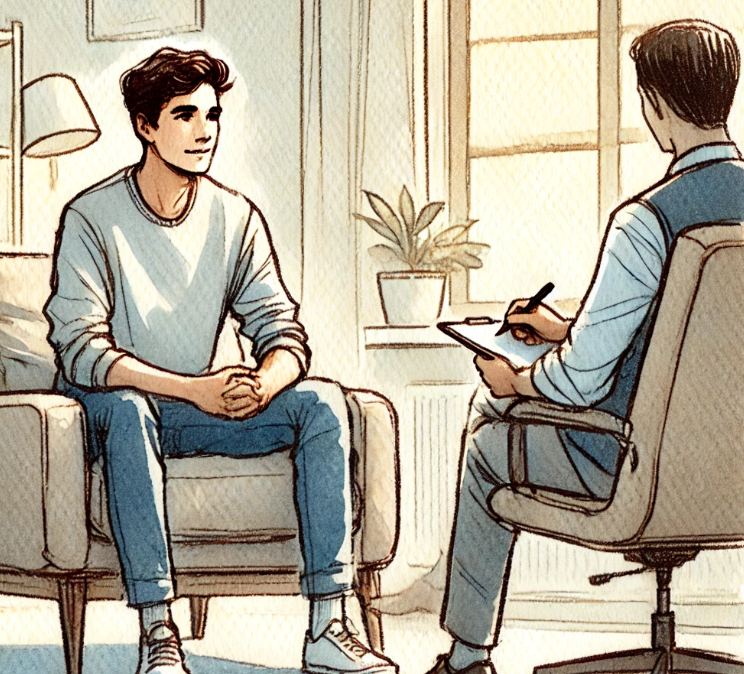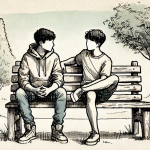
Depression and Sexuality: How Multiple Marginalizations Impact Mental Health
When we think about depression, the first images that come to mind are often of individuals struggling silently, hidden behind closed doors. But what happens when depression isn’t just about a personal battle? What if it’s tied to how society views someone’s sexuality, race, or income level? New research is shedding light on how these overlapping identities, particularly for bisexual and queer individuals from low-income backgrounds, can make them more vulnerable to depression—and the results are both surprising and unsettling.
In a groundbreaking study, researchers delved into the intersection of race, sexual orientation, and income to uncover the unique ways these factors shape mental health. They recruited 1,753 participants, primarily from low-income, racial/ethnic, and sexual minority groups, across Los Angeles and New Orleans to examine how depression rates differ within these communities. Their findings reveal a stark reality: bisexual and queer/questioning individuals are significantly more likely to experience depression than their heterosexual or lesbian and gay counterparts. But here’s where it gets interesting—race plays an unexpected role in shaping these outcomes, especially for bisexual people.
Why Bisexual and Queer Individuals Face Higher Depression Rates
The idea that bisexual and queer/questioning people face greater struggles with depression is not new. However, this study confirms that even within low-income populations, where financial strain affects mental health, bisexual and queer people still show significantly higher rates of depression than both heterosexual and gay/lesbian individuals. The reasons are deeply rooted in a phenomenon known as minority stress.
Minority stress is the extra emotional burden placed on individuals who belong to marginalized groups. For bisexual people, the stress often comes from two directions: they may face prejudice not only from heterosexual communities but also from within the lesbian and gay communities. This dual discrimination can lead to a sense of isolation, which, when combined with financial stressors, creates a perfect storm for mental health struggles.
Imagine walking into a room where everyone already has preconceived notions about you—not because they know you personally, but because of the labels society has slapped onto you. Bisexual individuals often navigate environments where they feel judged by multiple groups, leading to internalized stigma and a lack of community support. Now, add the stress of low income, which can make it harder to access resources like mental health services, and it becomes clear why depression rates soar.
The Surprising Role of Race in Depression Disparities
One of the study’s most intriguing findings is how race influences depression rates, particularly among bisexual individuals. Contrary to what many might expect, bisexual Black and Hispanic adults were found to be less likely to experience depression than their White counterparts. This discovery challenges the common assumption that multiple marginalized identities always compound to create worse mental health outcomes.
So why might bisexual Black and Hispanic individuals exhibit more resilience against depression? Researchers suggest that coping mechanisms developed through experiences of racial marginalization may play a role. For some, being part of a strong racial or ethnic community offers a buffer against the stresses of discrimination. These communities can provide social support and identity affirmation, which may help mitigate the emotional toll of being marginalized due to sexual orientation.
Consider the story of Maria, a bisexual Latina woman from Los Angeles. While she has faced discrimination based on both her sexuality and her ethnicity, her close-knit family and cultural community have given her a sense of belonging that has protected her mental health. This community, deeply rooted in shared experiences of overcoming prejudice, may offer emotional resources that help shield against the feelings of isolation often experienced by bisexual White individuals.
What This Means for Mental Health Support
The findings of this study emphasize the need for a more nuanced approach to mental health support, especially for those who belong to multiple marginalized groups. Bisexual and queer/questioning individuals, particularly those from low-income backgrounds, require mental health services that address the unique challenges they face. But traditional support systems often fail to account for the complexities of these individuals’ experiences.
For example, a bisexual person seeking therapy may feel misunderstood if the therapist doesn’t acknowledge the specific pressures they face from both the straight and lesbian/gay communities. Or, a low-income queer individual might struggle to access mental health care because of the cost or lack of culturally competent services in their area. Addressing these gaps means providing more affordable, accessible, and inclusive mental health care tailored to the needs of diverse sexual orientations and racial backgrounds.
Moving Forward: Intersectionality in Mental Health Research
This study highlights the importance of intersectionality, a framework that examines how various forms of identity—such as race, sexual orientation, and socioeconomic status—interact to shape individuals’ experiences. For too long, mental health research has treated marginalized groups as monolithic, failing to account for the rich diversity within these populations. By looking at how these identities intersect, we can better understand the unique struggles faced by individuals like bisexual Black and Hispanic adults and develop more targeted interventions.
Moving forward, future research needs to continue disaggregating sexual minority groups and examining how race, income, and other factors contribute to mental health disparities. It’s not enough to say that bisexual people experience more depression—we need to understand which bisexual people are most affected and why.
What Can You Do?
If you or someone you know is struggling with depression, especially if they belong to multiple marginalized groups, it’s important to seek out support that acknowledges the full complexity of their identity. Finding culturally competent and LGBTQ-friendly mental health services can make a huge difference in the effectiveness of treatment.
Have you ever considered how your different identities shape your experiences with mental health? How can we create more inclusive and supportive mental health services for people navigating multiple forms of marginalization?




